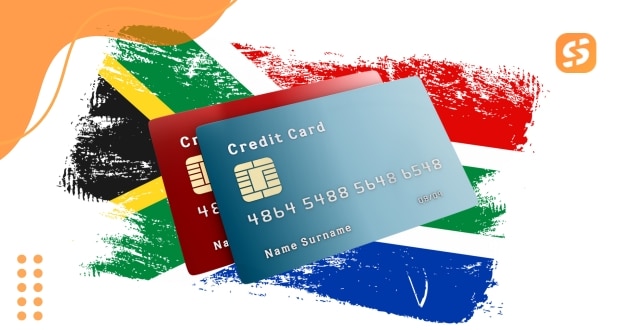Advertisements
Credit cards for low income South Africa are more than just financial products; they are instruments of inclusion that bridge the gap between everyday financial needs and access to formal banking.
For millions of South Africans who live on modest wages, being able to apply for a credit card was once an unattainable goal, often associated only with wealthier individuals or corporate clients. However, in recent years, banks and financial institutions have shifted their strategies to design tailored solutions that meet the realities of low-income earners.
At its core, the concept of these cards is simple. Provide a reliable line of credit without demanding high income thresholds or expensive monthly fees. Yet, beyond the surface, their role is far more profound.
By giving more people access to credit, credit cards for low income South Africa empower individuals to manage emergencies, pay for essentials, and build a positive credit history. This is particularly significant in a country where financial inequality remains stark, and many citizens have historically been excluded from traditional credit systems.
Advertisements
Understanding the Concept of Low Income Credit Cards

Low-income credit cards play a vital role in financial inclusion across the country. Designed with reduced income requirements and simplified application processes. Credit cards for low income South Africa make it possible for individuals who were once excluded from the banking system to access credit.
These cards provide smaller credit limits, which may seem restrictive at first. But they actually promote healthier spending habits and reduce the risks of over-indebtedness.
Moreover, the affordability of these products has been enhanced by innovative options such as the Credit Card No Annual Fee South Africa. Which eliminates unnecessary costs for cardholders.
By removing annual fees and offering basic yet valuable benefits like interest-free days, fraud protection, and SMS alerts, these cards give low-income earners a practical way to manage expenses and build a positive credit history. They also ensure safer, cashless transactions in a country where security concerns are still significant.
Advertisements
In the long term, credit cards for low income South Africa not only empower individuals to handle daily financial needs but also help them establish a foundation for future opportunities. Such as applying for larger loans or premium credit cards.
When combined with responsible use and financial education, these cards become more than tools for short-term spending. They serve as instruments of dignity, opportunity, and financial growth for millions of South Africans.
Why Low Income Credit Cards Matter in South Africa
South Africa faces persistent challenges in terms of income inequality and unemployment. Because of this, many people are excluded from formal credit systems. By introducing inclusive products, banks are not only expanding their customer base but also contributing to financial inclusion.
Furthermore, credit cards for low income South Africa provide a gateway into the formal financial system. They allow individuals to establish or rebuild credit history, which is essential for future access to larger loans. Such as home loans or car finance. Beyond that, these cards encourage safer transactions, reducing dependence on cash in a country where cash-related crimes remain a concern.
Benefits of Credit Cards for Low Income Earners
Although they may not offer luxury travel perks, these cards still come with meaningful benefits. First, many options include interest-free periods of up to 55 days, giving cardholders the opportunity to manage short-term expenses without paying extra costs.
Second, some banks add loyalty or cashback programs, where every purchase earns rewards that can be redeemed for groceries, airtime, or even fuel. While these rewards may be modest compared to premium products, they represent tangible savings for families trying to stretch their budget.
Third, credit cards for low income South Africa frequently provide basic security features such as SMS alerts, fraud protection, and 24-hour customer service. These benefits, though often overlooked, are invaluable in protecting both money and personal information.
Challenges and Risks to Consider
Nevertheless, it is equally important to highlight the challenges. One common issue is the relatively high interest rate that may apply if the cardholder fails to pay the balance in full. Because banks consider low-income customers to be higher risk, they sometimes charge higher rates compared to premium clients.
Additionally, while low credit limits can be positive in terms of spending control, they may not always cover larger emergencies. Which limits the card’s usefulness in critical situations. Another risk is the temptation to treat credit as extra income. Without proper financial discipline, cardholders can quickly accumulate debt, which becomes even more problematic when monthly earnings are modest.
Popular Options Available in South Africa
South Africa’s banking sector includes several options designed for this market segment. Transitioning to specific examples, the following are some commonly accessible choices:
- Capitec Global One Credit Card – Widely known for its affordability, it has a low income requirement and competitive interest rates. Capitec also emphasizes digital banking, allowing clients to manage their accounts efficiently via mobile apps.
- FNB Aspire Credit Card – This card targets middle- to low-income earners with an income requirement starting at around R3,000. It offers eBucks rewards, which can be used for groceries, fuel, and other essentials.
- Standard Bank Blue Credit Card – Aimed at first-time credit users, this product provides manageable fees. Lower entry requirements, and access to the bank’s rewards system.
- Absa Flexi Core Credit Card – Designed for those with a limited credit history, this option emphasizes affordability, responsible credit use, and everyday convenience.
These are just a few examples, but they demonstrate how the market recognizes the need for credit cards for low income South Africa and continues to provide alternatives.
How to Qualify and Apply
When applying for one of these cards, the process is relatively straightforward. Most banks require proof of identity, proof of residence, and proof of income such as payslips or bank statements. In many cases, the minimum income threshold is much lower than for standard or premium cards.
Applications can usually be completed online, through mobile apps, or at physical branches. After submission, the bank will evaluate the applicant’s credit profile and determine eligibility. Because the requirements are tailored to lower earnings, approval chances are generally higher compared to premium credit products.
Responsible Use: Building Credit with Discipline
While accessibility is a positive feature, responsible use is what truly makes these products valuable. For example, always paying at least the minimum installment on time avoids penalties and maintains a healthy credit record. Even better, paying the full outstanding balance each month ensures that no interest charges apply, keeping the card affordable.
It is also advisable to keep credit utilization below 30% of the available limit. This not only reflects positively on the credit report but also prevents overreliance on borrowed money. Over time, such discipline enables cardholders to build a stronger financial profile. Which can open the door to higher-limit or premium cards in the future.
Conclusion
The expansion of credit cards for low income South Africa has created new opportunities for financial inclusion. By lowering income requirements and simplifying applications, banks are making credit accessible to people who were once excluded. These cards help individuals manage emergencies, pay for essentials, and build a credit history. All while promoting safer and cashless transactions.
In addition, the introduction of options such as the Credit Card No Annual Fee South Africa has made these products even more affordable. With features like interest-free periods, fraud protection, and SMS alerts, they provide real value to low-income earners without adding financial strain. Responsible use of these cards can help cardholders strengthen their financial stability and prepare for future opportunities, including higher-limit credit products and loans.
For those seeking practical solutions, banks like Capitec Bank offer official resources that explain credit options tailored to low-income earners. Exploring these resources allows individuals to make informed decisions and use credit wisely. Ultimately, credit cards for low income South Africa are not just tools for spending, they are pathways to dignity, inclusion, and long-term financial growth.



















